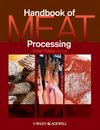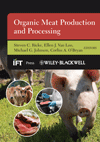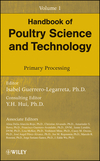Two things can contribute significantly to your success; knowing your costs and controlling your wastes. You have both variable and fixed costs. Variable costs are any expenses that increase or decrease sales. Fixed costs or overhead costs are manufacturing costs that cannot be directly traced to a product in a cost-effective way. Typically, the two major variable costs are direct labor and materials. It is extremely important to know your true labor cost. Not the cost of what you pay an employee per hour but rather what they cost you for each productive hour that they work. To determine direct labor true cost you must first (A) compute total employee cost per year which includes payroll taxes and all benefits then, (B) determine hours available to work minus time spent on breaks, clean-up, getting started, etc. (don’t forget to consider vacation and sick leave). True labor cost = A/B. After you compute your true labor cost you can use that to help determine the profitability of various tasks. You may want to break down your analysis into various departments or tasks such as harvesting, fabrication or processing. You must know what parts of your business are profitable and which are not. Without that knowledge you cannot effectively build on your strengths and improve your weaknesses.
You must also maximize utilization of your materials whether it is meats, ingredients, casings or packaging. A significant key to profitability is yield; how many pounds of product you have to sell.
Start out with 100 pounds of meat to manufacture into smoked sausage. If by using one procedure you end up with 90 pounds of finished product and another you yield 103 pounds of finished product, there is a tremendous difference in product cost. Even 2 to 3 percent difference in yield can represent a substantial difference over time. People producing processed meat products need to think of themselves as water managers. Yield is the name of the game. Know your yields and know what a decrease in yield will cost you and what an increase in yield gains for you.
Toyota Corp., which is known as one of the world’s leading manufacturing companies, has identified seven common wastes; 1) overproduction, 2) waiting, 3) unnecessary transport or conveyance, 4) incorrect processing or over processing, 5) excess inventory, 6) unnecessary movement and 7) defects. Jeffrey Liker, author of The Toyota Way, added an 8th waste to the list; unused employee creativity. I am confident that if you spend some time reflecting on these wastes you can come up with several ways to cut waste in your operation. The Toyota Way is excellent reading for those who want to increase the efficiency, effectiveness and profitability of their plants.
Remember: Success does not always come to those who work harder; rather, success is known to smile on those who work smarter. To be successful in 2009, “work smarter not harder.”
Dr. Joe Cordray is the Extension Meat Specialist at Iowa State University.





